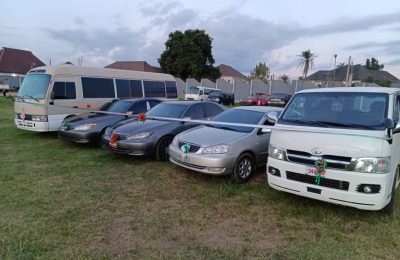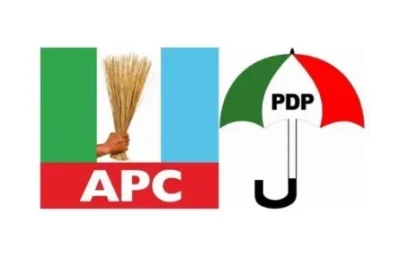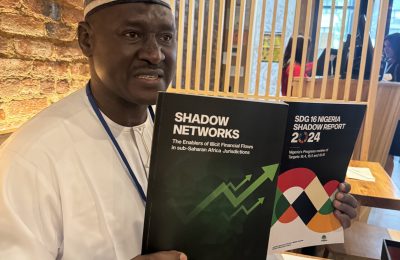Just before genocide broke out in Rwanda in 1994, a broadcaster on the Radio Television Libre des Mille Collines (RTLM) had said: “Someone must … make them disappear for good … to wipe them from human memory … to exterminate the Tutsi from the surface of the earth.” That statement, among others, from the Kigali-based radio which broadcast from July 8, 1993 to July 31, 1994, became the tinder that set Rwanda on fire. By this time next week, the 2023 Nigerian general elections would have been concluded. However, like the shrew – the asin – which leaves in its trails pungent and breath-ceasing smell, the elections, perhaps unwittingly, have endangered social cohesion among ethnicities and set Nigerian unity back by almost a century.
RTLM broadcasters got enveloped in crude jokes and usages of offensive language that have today been held to have contributed highly to the 1994 genocide. The radio was so oblivious of how it was leading the country to a funeral parlour, so much that only 1.52% of its airtime was said to have been dedicated to news and on the contrary, a huge 66.29% of its airtime saw its broadcasters espousing their incendiary thoughts. The radio broadcast mainly anti-Tutsi propaganda during this period just as it characterized Tutsi as dangerous enemies of the people whose aim was to hijack political power and elbow Hutus out of the equation. Almost on a daily basis, RTLM amplified ethnic and political divisions. One of the most notorious classifications it made was labeling the Tutsi as inyenzi – non-human pests or cockroaches, which must be wiped out for its irritancy. Two hundred and fifty two broadcasts by RTLM called for Hutus to machete Tutsis to death.
Nigeria is unwittingly going down this cadaver-full road. Its own RTLM are social media ethnic irredentists who have no idea of what it means to fight war. The social media warriors are also daily reinforced by notable leaders in the country who fuel ethnic politics. Can you notice any dissimilarity between the RTLM “making them disappear for good” and a Nigerian “throwing an ethnic group inside the lagoon” so that they can be feasted upon by sharks and whales?

Rwanda of 1994 is an African sore thumb that hangs out menacingly as an eerie lesson for every ethnicity under the human race. It describes in short sentences how hatred-laced speech and sporadic threats of violence can effectively help to spread genocidal prejudice across the length and breadth of society. Today in Nigeria, politics and politicians have left a deeply divided Nigeria, whose divisiveness spans over a century. This is fuelled by extremist ethnic, political views and divisions that openly and mutually preach hatred and violence. We are almost arriving that bitter intersection of Rwanda.
Though figures of casualty are still being disputed, from April 7 to July 9, 1994, a total of between 600,000 and 1000,000 people were either macheted or shot to death in the Rwandan inter-ethnic animosity. While the government claimed that 1,074,017 people were killed in the genocide, 94% of whom it claimed to be of Tutsi ethnic origin, Human Rights Watch, claiming to have conducted an on-the-ground research, said that the estimate of casualties was 507,000 people. In contrast, the Journal of Genocide Research, in a 2020 report, claimed that the official figure was not credible and that the figure was between 500,000 to 600,000 deaths. What was however incontestable was that the genocide left thousands of widows, many women raped to death and hundreds of them infected with HIV. Thousands of children also made up an approximate figure of 400,000 who became orphans.
Rwanda, pre-genocide had a lot of historical similarity with Nigeria, especially domination history. In a journal article entitled Prejudice, Crisis, and Genocide in Rwanda, published in 1997 by African Studies Association and written by Peter Uvin, the author asked, in a pathetic evocation of our humanity, “how do situations come about in which people massively participate in brutal violence against their neighbors who have not harmed them?”

Today, Nigerians may need to ask themselves same question that Uvin asked. The greatest culprits of this widespread sowing of seeds of hatred and discord are the Yoruba and Igbo of southern Nigeria. Though mutually historically suspicious of each other since the 1950s, basing this suspicion on historic claims of betrayals that are at best mythic, the 2023 elections have far worsened that divisiveness, widening the crevices beyond tolerable level.

Rome was not built in a day, it was not destroyed in day either. Unless people delink history of hate and violence from their mindset today, the resultant effect can be cataclysmic. In doing this, I will quote generously from a piece I did on November 6, 2022 entitled The abduction of Pa Reuben Fasoranti to back my claim of a historical and social roots of this ethnic prejudice that reign among the Yoruba and Igbo today.
The mutual hatred between the Igbo and Yoruba didn’t start today. Two narratives feed its trough. The first was Nnamdi Azikiwe of the National Council of Nigeria and the Cameroons (NCNC’s) attempt to become the first Premier of the Western Region. Before then, the tribal tension in the Nigerian Youth Movement (NYM) constituted a huge centre of distraction to the two ethnic groups. So, in the February 1941 split in the NYM over the contest for the Legislative Council seat between Samuel Akisanya (who later became the Odemo of Isara) and Ernest Ikoli, erstwhile Daily Service editor, Zik and his West African Pilot newspaper pitched their tents with Akisanya. Yoruba leaders queued behind and voted for Ikoli. This generated further tension between 1946 and 1948 in the NYM, eventually and effectively leading to the death of this anti-colonial government movement.
Azikiwe didn’t hide his disdain for the Egbe Omo Oduduwa and its leaders. Indeed, Egbe Omo Oduduwa had not been formally inaugurated by the time Azikiwe’s NCNC, in December 1947, sponsored protest demonstrations against it, using the editor of the Pilot, F. O. Coker, as the peg of the protest. Zik and his party, the NCNC, went on to form the Yoruba Federal Union (YFU) as a counterpoise to and as such, weaken the Egbe. This was at a time of growing solidarity among the Yoruba. Zik and his crew launched the YFU on June 12, 1948, at Glover Hall, Lagos but were so tactless as to make the speakers at the inauguration be Azikiwe himself, Mbonu Ojike, a known Zik apostle and columnist in the Pilot, as well as Oged Macaulay, a known Zik ally. The YFU however suffered the fate of all politically concocted contrivances – it faded out.
The second point of antagonism between Yoruba and Igbo was Zik and Obafemi Awolowo’s fight for the control of the western region. While the NCNC was founded in 1944 by foremost nationalist and Yoruba, Herbert Macaulay, and who went ahead to be its first president, Azikiwe was its first secretary. At Macaulay’s death, the mantel fell on Zik to lead the party. However, Zik’s usage of the Pilot to situate the Igbo ahead of other ethnic groups infuriated the Yoruba who walked out of him after the London conference.
Zik was said to have resisted suggestions that Adegoke Adelabu be made leader of the party in the western region while he held the position of national leader. He then contested the 1951 elections. With the 1951 Macpherson Constitution stipulating an indirect election to the regional assemblies through electoral colleges, many of the NCNC members were reported to have seen through Zik’s plan against Yoruba and aligned with Awo during the election. Zik was defeated, prompting his return to the eastern region with the belief that ethnic card was used by the Yoruba against him. Since then, the Igbo have held on to the belief that an alignment with the north is more sustainable rather than with the west. The inter-tribal political conflicts which ensued thereafter have been acerbic and constitute the basis of the gulf in political and even social relations among the two ethnic groups till date.
The civil war is the third and another major source of ethnic hatred between the two ethnicities. While knowledgeable Yoruba and even Igbo have put a lie to a mythic meeting between Awolowo and Biafran leader, Colonel Odumegwu-Ojukwu where the former assured the latter that if the east seceded from Nigeria, the west would follow suit, this “betrayal” has worsened the symbols and narratives of relationships between the east and west.
This has led the east to prefer political relationship and association with the north, than the west and vice versa. The only time when the west attempted to unite with its eastern brother was in the 1962 imbroglio when the rump of the NCNC, represented by Michael Okpara, formed an alliance with the rump of Action Group which resulted in UPGA. S.L. Akintola, who himself had formed an alliance named NNDP had made jest of the UPGA alliance, in the Sketch of November 10, 1964, calling it “a club of grousers and grumblers.”
Since then, the socio-political relations between the east and the west have been ruled by mutual suspicion. The 2023 elections have taken it a notch higher, to a frightening level. Whether out of their communicated or uncommunicated actions, both Bola Tinubu, Peter Obi of All Progressives Congress (APC) and the Labour Party (LP) as well as their supporters, have instantly metamorphosed to the duelers of the 1951 elections. All the divisive narratives have then resurfaced, with sophisticated and destructive symbols.
While the February 25, 2023 election in the southeast showed that the east was riven by an Emilokan syndrome, the southwest didn’t fare better. Both voted for their sons in a very unaccommodating manner that destroyed the tenets of fair play. Mundane indices like ethnicity and religion ruled the election. While the southwest was even fairer by allowing the LP to penetrate its zone due to the sophisticated nature of its intelligentsia, the southeast was unilineal in its voting pattern, voting for nothing else but its son. This is what worsened the already fragile relations between the Igbo and Yoruba in Lagos especially, leading to saber-rattling and bellicose narratives as if both ethnicities were on the road to Kigali.
The winner of the 2023 election, in my view, is the northern region of Nigeria. In what will appear its first ever since the First Republic, the north showed the west and the east that it was more knowledgeable, more accommodating and more politically sophisticated than them. Not only didn’t it vote according to region, religion or ethnicity, it paved way for both Tinubu and Obi to enter its electoral spaces.
If the bellicose armies of tribe have not set western and eastern regions on fire by this weekend when the elections would be held, the two must return to drawing table and enter their own Arusha Accord as the ethnicities did in Rwanda. It must contain how to begin all over again. The current ideology of discourse, especially on the Lagos State gubernatorial election, is tottering on the path of genocide, the type that was present in Rwanda preparatory to the 1994 killings.
The systematic discrimination against each other by the ethnicities and the underscore of individual ethnic identity have provoked what can be called a prejudicial ideology. While the Yoruba maintain the stranger-ness of Igbo in Lagos, Igbo have also maintained same of Yoruba in their land. Likening this to what happened preparatory to the genocide against the Jews by Germans, Fein H, writing about the Holocaust, in his “Accounting for Genocide after 1945: Theories and Some Findings,” had said: “One condition that may predict genocide in the making is the practice of denying groups access to political and/or economic positions. In Germany prior to Nazi rule, the Jews were only marginally integrated politically. Economically Jews were overrepresented in the professions, but traditionally had been excluded from the guilds and civil service. The anti-Semitism that denied Jews access to political office, education and the professions eroded slowly during the 19th century, only to reemerge at the end of the century. Prior discrimination and prejudice made the Jews a convenient target for Nazi ideologues.”
We must destroy this structure of discrimination that exists between the Yoruba and Igbo and eliminate the racist prejudice that is daily radicalizing the existing ethnic structure constructed in the 1950s. This is being nurtured by profound and divisive images on the social media. If this is not done quickly, we will arrive faster than we imagined at a 1994 Rwanda where Hutu identified and targeted their Tutsi neighbours to be macheted to death.
READ ALSO FROM NIGERIAN TRIBUNE








